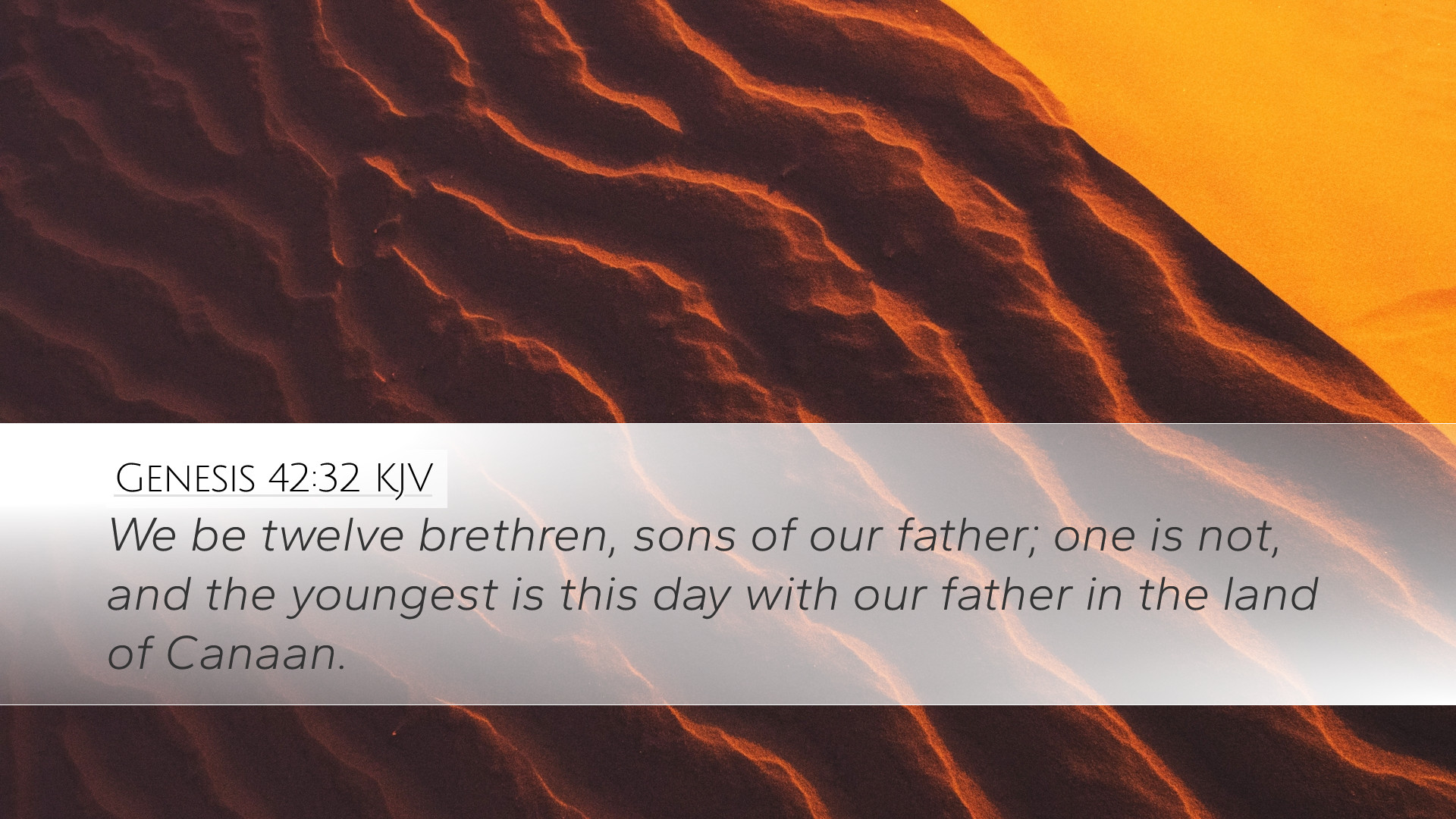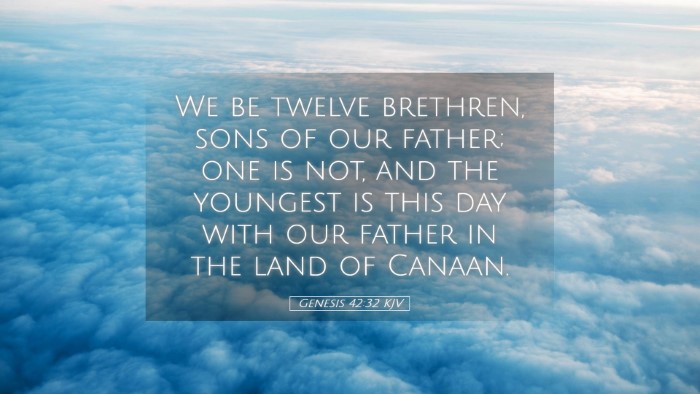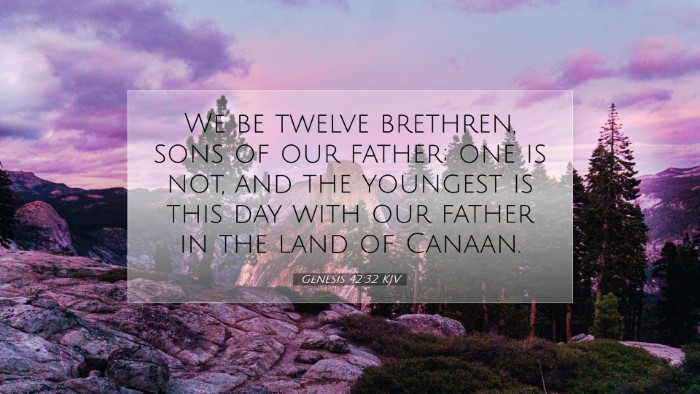Commentary on Genesis 42:32
Genesis 42:32 presents a profound moment in the narrative of Joseph and his brothers. The verse reads,
"We are twelve brothers, sons of one man in the land of Canaan, and the youngest is with our father today, and one is no more."
This statement encapsulates the themes of familial relationships, loss, and divine providence that permeate the text. In this commentary, insights from Matthew Henry, Albert Barnes, and Adam Clarke will be explored to provide a multifaceted perspective on this verse.
Contextual Background
This verse is situated within the larger narrative of Joseph's rise to power in Egypt and his complex relationship with his brothers, who had previously sold him into slavery. The brothers stand before Joseph, unaware that he is the brother they betrayed. Their assertion of their family ties serves to remind readers of the deep connections and consequences of familial sins.
Thematic Analysis
-
Familial Identity:
The verse highlights the importance of family identity, as the brothers identify themselves not only as sons but specifically as "twelve brothers." Matthew Henry notes the significance of this designation in emphasizing their bond and the shared guilt of their past actions. This identity is foundational to the story, serving as a pivot around which their remorse and eventual reconciliation will revolve.
-
The Concept of Loss:
The phrase "one is no more" poignantly reflects the brothers' grief over Joseph, whom they believe is dead. Albert Barnes expounds on this idea of loss, indicating that their recognition of Joseph's absence signifies not only their emotional struggle but also their failure to accept the consequences of their earlier betrayal. Their acknowledgment lays bare their guilt, serving as a precursor to their eventual repentance.
-
Divine Providence:
The narrative showcases God's sovereign hand in the events that unfold. Adam Clarke observes that the very circumstances leading them to Egypt, and in particular, their encounter with Joseph, are orchestrated by divine providence. This engagement acts as a vehicle for the fulfillment of God's plan for Israel, emphasizing that even in betrayal and hardship, God's purposes prevail.
Character Insight
-
The Brothers:
The brothers are portrayed as complex characters grappling with guilt and fear. They do not recognize Joseph, reflecting their psychological state shaped by past deeds. Henry notes that their acknowledgment of their familial ties, especially the mention of their father and younger brother, shows their desperation and desire for redemption. This hints at the transformative journey they will embark upon throughout the narrative.
-
Joseph:
Although not explicitly mentioned in this verse, Joseph's presence looms large. He embodies the narrative of suffering turned into salvation. Clarke highlights that Joseph's ability to forgive and the grace with which he interacts with his brothers will showcase the powerful themes of reconciliation and healing that are central to the biblical narrative. Here, the brothers unwittingly confront the very individual they wronged, setting the stage for an encounter fraught with emotional tension.
Reflection for Practitioners
For pastors, students, and theologians, Genesis 42:32 invites deep reflection on themes of confession, reconciliation, and divine purpose. The journey of the brothers is emblematic of many spiritual journeys today, where individuals grapple with guilt, loss, and the desire for restoration. The weight of their history serves as a reminder of the importance of facing the past to embrace the potential for future healing.
Concluding Thoughts
In concluding this commentary, it is vital to recognize how Genesis 42:32 encapsulates a transformative moment in the biblical narrative. It confronts the reader with themes of familial loyalty, the burden of guilt, and the overarching role of divine providence. As such, it serves as a reminder that, like Joseph's brothers, we too are called to acknowledge our past, seek reconciliation, and trust in God's sovereign plan for our lives and communities. Thus, Genesis 42:32 is not merely a historical account but a timeless beacon for personal and collective restoration.


